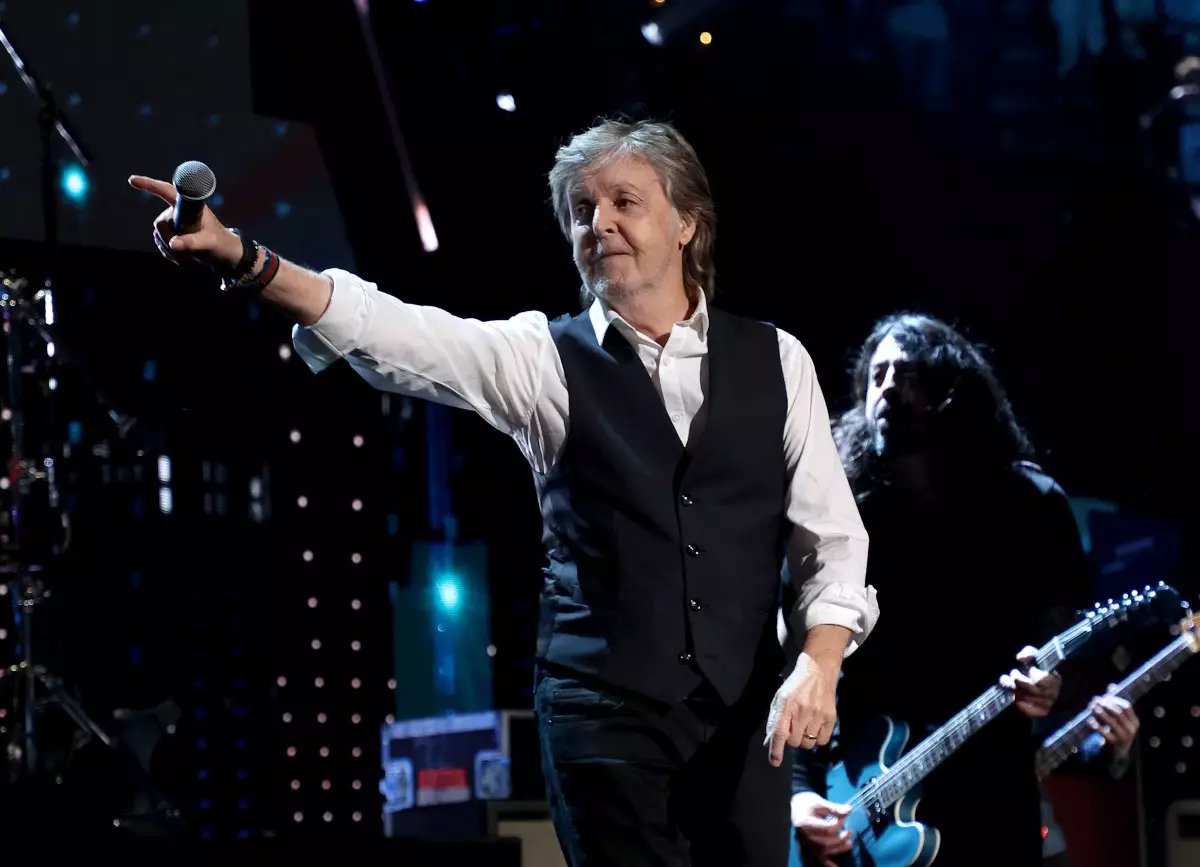In a remarkable twist of fate, The Beatles have been nominated for two Grammy Awards this year. The iconic British band, which has not released new music for over five decades, managed to create buzz with their song “Now and Then.” This piece, enhanced by artificial intelligence, showcases how technology can breathe new life into musical history. The nominations for Record of the Year and Best Rock Performance have stirred conversations around the intersection of AI and creativity, demonstrating that the shadows of these legendary artists still loom large in today’s music scene.
The revival of “Now and Then” is credited primarily to Paul McCartney, who sought to utilize modern technology to refine an old demo from John Lennon, recorded in 1978. Unlike some artists who might use computer-generated imagery or deepfake technology to unfairly resurrect late legends, McCartney’s approach is more about rejuvenation than resurrection. By employing AI techniques to enhance the audio quality, he transforms a grainy relic from the past into something fresh and relevant. This method echoes strategies used in recent documentaries, such as Peter Jackson’s “The Beatles: Get Back,” where AI played a significant role in improving audio clarity for archival footage.
As The Beatles re-enter the Grammy arena, they find themselves up against contemporary artists like Sabrina Carpenter, Chappell Roan, and even music titans like Beyoncé. This competitive mix casts an intriguing light on what “timelessness” means in the music industry today. The nomination offers a strange yet fascinating juxtaposition: can songs born from a bygone era still compete in an awards show filled with modern hits? The dynamics of listening habits and music consumption have evolved significantly; thus, it raises questions about the perceived value of legacy artists pitted against the reigning pop icons.
While “Now and Then” boasts 78 million streams on Spotify—a number notably lower than many of its contemporaries—its profound cultural significance cannot be overlooked. The Beatles, often heralded as rock’s most influential figures, have entered a conversation about whether they can clinch Grammy accolades based on sheer novelty rather than streaming statistics. This points to an interesting dilemma in award shows: Should success be measured by numbers or by historical contributions to music that resonate across generations? As critics ponder the implications of their nominations, they must also consider the legacy that artists like The Beatles leave behind, regardless of their streaming figures.
Ultimately, The Beatles’ Grammy nominations for “Now and Then” encapsulate a unique convergence of nostalgia and technological innovation within the music industry. As AI continues to reshape the fabric of creation, the path taken by McCartney and the team behind this project emphasizes the enduring allure of The Beatles. Regardless of the outcome, their foray back into the spotlight offers music lovers a timely reminder of the power of great songwriting and the unbreakable bond between past and present. The Grammy stage will undoubtedly provide an unforgettable moment, whether marked by victory or simply a recognition of their indelible impact on music history.

